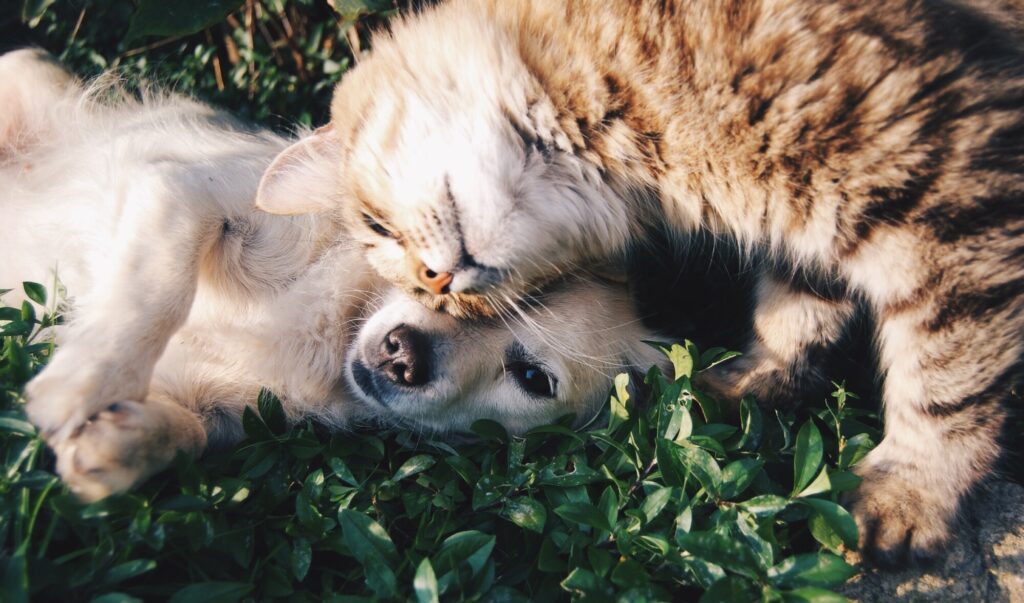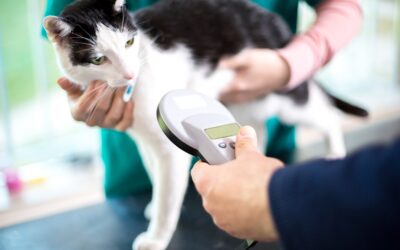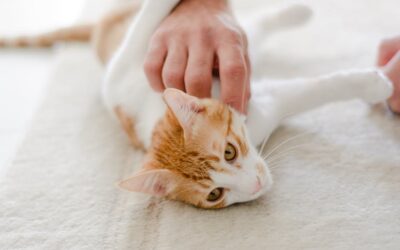
70% of U.S. households include at least one pet! Pets can be fantastic additions to any home, and proper pet care is fairly straightforward. Are you ready to bring a new friend into your home?
While dog and cat care isn’t complicated, there are a few common pet care mistakes that owners make, even if they have a lot of pet care experience. We’re here to identify those mistakes so you can avoid making them yourself.
Read on to learn more.
1. Not Properly Preparing Your Space
Preparing your home for a new pet is an essential step to ensure a smooth and safe transition for both you and your furry friend (as well as any other pets or family members that live in the home already).
Of course, if you happen to bring in a stray pet without much warning, it is understandable that you may not have a perfect space. This is for people who have planned for a new pet and who have time before the pet comes home.
Make sure you’ve collected some basic supplies. This includes food, treats, litter or pee pads, grooming tools, and any specific items recommended by your veterinarian. Having these essentials on hand will ensure a seamless transition and help your pet settle in.
Set up a space for your new pet with their bed, toys, water, and food bowls. This will give them a sense of security and familiarity. Consider using crates or gates to restrict access to certain areas until your pet gets more comfortable.
If you have other pets, you’re better off restricting the new pet to one room until your other pet(s) adapt to having a new animal in the house. Some pets adapt well to having new friends while others are more territorial. Here’s some more information about how to introduce pets to each other.
Your home doesn’t have to be perfect for your new furry friend. As long as it’s safe and comfortable, you’re on the right track.
2. Neglecting Veterinary Care
Only about 40% of dog and cat owners visit a vet every year. While yearly visits may not be essential for every pet, this is something you should establish with your vet. Annual vet visits can be life-saving, so make sure you’re not neglecting any necessary veterinary care.
Skipping routine veterinary check-ups and vaccinations can prevent early detection of health issues and increase the risk of preventable diseases. A small problem can turn into a major health issue quickly without proper care.
Vets can also give you helpful advice on how to keep your pet as happy and healthy as possible. They can advise you on how to feed your pet, how to give your pet exercise, and so much more.
If you ever plan on boarding your pet or having it groomed by a professional (more on that later), it may have to be up-to-date on all vaccinations. Without regular vet visits, your pet may fall behind.
Vets also handle dental care. Many people neglect their pets’ teeth, but this is a mistake. It’s common for pets to experience dental issues that can make chewing painful for them.
3. Not Socializing Pets
Socializing your pet is a crucial part of their development and overall well-being. Whether you have a puppy, kitten, or adult animal, socialization plays a significant role in helping them become well-adjusted and confident companions. Of course, this isn’t as important for pets that don’t experience frequent handling by strangers, such as reptiles and insects.
Expose your pet to a variety of people, animals, and environments in a positive and controlled way. Over time, introduce them to different sights, sounds, smells, and experiences, rewarding them for calm and confident behavior. Try going to the park or visiting pet-friendly restaurant patios.
You can also use obedience classes or pet daycares to socialize your pet. These are mostly for dogs. They’ll help your furry friend adjust to different types of people and animals so they’re calmer and less fearful.
A well-socialized pet is safer and happier. Don’t make the mistake of isolating your animal companion. This could result in separation anxiety and bad behavior around strangers (but humans and animals).
A quick note: make sure your pet has all necessary vaccinations before socializing it!
4. Improper Feeding Habits
Your pet relies on you for its nutrition needs! Pets can’t eat what they would “in the wild.” They’re stuck with whatever you get them, so make sure you’re feeding them well.
Your vet will recommend food for your pet if you ask. They may recommend food for special diets (such as weight loss or hairball control) or just a good “all-around” food.
Most store-bought foods are also appropriate, though you should pay attention to ingredients and do your research. Your pet is relying on you!
You can also make your own pet food, but you have to be careful. There are many things that pets simply can not eat or they’ll get sick. If you choose to prepare your pet’s meals, make sure you’re well aware of any and all nutritional needs.
You also need to make sure your pet is getting the right amount of food.
Some pets are able to graze and they’ll eat when they’re hungry and stop when they’re full. Many pets, however, are not like this. You need to keep track of what and when they’re eating or they may become overweight.
Pet obesity can cause serious health problems, and you’re responsible for making sure that your pet isn’t over-eating. If your pet is looking a bit overweight, it might be time to switch to diet food or take a look at your portion sizes.
5. Not Providing Ample Play or Exercise Time
Does your pet get enough exercise? Many pets don’t, especially if they have busy owners. Make sure your pet is getting enough playtime.
Regular play and exercise help keep your pet physically fit. Activities like walking, running, playing fetch, or engaging in interactive games help promote good cardiovascular health and they’re great for bonding.
Not all pets need the same amount of exercise or playtime. If you have a dog that’s an “athletic” breed, you may need to go for more walks or runs to keep it happy. If you have a cat or a less active dog, shorter bursts of play may be sufficient to keep it happy and healthy.
If you don’t have enough room in your home for your pet to play, consider finding a safe place outside, like a fenced-in yard or a dog park. You can also, again, take your dog to a doggy daycare so it can get some fun playtime with other dogs.
6. Inadequate Training Habits
Cats and dogs require some degree of training. This isn’t to say that all of them need to be able to do tricks or be in competitions, but there are some things they should know to stay happy and safe at home.
For dogs, they should know “sit,” “stay,” and “come” at the very least. These are commands that can keep your dog safe. If your dog is willing to listen to you when it would rather approach something it’s interested in, it’s a good sign.
You should practice these commands at home first and then out in public to see if your dog still does well with distractions. Dogs should also go through leash training.
Both dogs and cats may require training for proper bathroom habits. You don’t want to have any messes in your home.
Make sure you’re training your pets with positive reinforcement. That means that you’re rewarding good behavior rather than punishing bad behavior. Pets often don’t understand punishment, but they do understand when they’re getting praise or a treat in response to doing something right.
Be firm, but still gentle with your pets. Harsh training methods could result in anxiety.
7. Neglecting Grooming Needs
Proper pet grooming is an essential aspect of caring for your furry friend. It isn’t just about maintaining their physical appearance, it’s also about their overall hygiene.
Make sure you’re brushing your pet’s coat if it has long fur. Regular grooming helps keep your pet’s fur clean, free from tangles, mats, and excess shedding. Brushing removes dirt and dead hair, and distributes natural oils, promoting a healthy and shiny coat.
Mats can be painful for your pet. If your pet gets a mat that’s too big to handle, don’t panic. It happens, even for responsible pet owners!
Take your pet to a groomer so they can take care of it for you without causing harm to your furry companion. Some vets may also offer to take care of serious mats if your pet requires sedation.
Trimming your pet’s nails regularly is essential for their comfort and mobility (for some pets, at least). Overgrown nails can cause pain, difficulty walking, and even joint problems. Proper nail trimming prevents these issues and promotes proper posture and foot health.
Cats often dull their own nails and don’t require trims, but dogs almost always require trims unless they’re working dogs.
Full grooming also includes regular teeth brushing to maintain good oral hygiene. Your vet can give you advice on how to properly brush your pet’s teeth.
8. Not Providing Enrichment
Your pet is a living creature, and that means that it needs enrichment. Whether you have a dog, a cat, a rodent of some sort, or even a reptile, you need to make sure it’s getting adequate stimulation.
For dogs and cats, this means you need to play with them (as we mentioned before). You should also provide them with things they can use to entertain themselves, like puzzles or independent toys.
Cats like to jump and climb, so cat owners should consider buying cat condos or shelves. If you have outdoor space, consider creating a secure “catio” for your cat so it can sit in the sun and listen to the sounds of the outdoors.
Moving around the furniture at home can even provide enrichment. Animals love exploring new spaces, so making your space look new will be interesting for them.
For small pets, make sure their enclosures have some type of activity or toy. Even small animals can get bored and restless.
9. Not Considering Identification
If you have a cat or dog, you need to make sure you have a microchip for it.
A microchip is a small device that’s about the size of a grain of rice. It’s implanted under your pet’s skin, typically between the shoulder blades. While insertion can be uncomfortable, your pet won’t even feel the microchip once it’s in place.
Often, vets will place chips while your pet is getting vaccinations or going through sterilization surgery to make it easier.
Even if your pet is always indoors, mistakes happen. Pets escape and run away. A microchip will make it easier for your pet to make its way back to you.
When people find lost pets, they often go to local shelters. These shelters will look for microchips. Chips have contact information so they can find owners.
10. Not Doing Any Preliminary Research
Before you get a pet (again, unless you took a stray in by surprise), you should do research. Make sure the pet is suitable for your lifestyle. Make sure you’re ready for the time commitment and responsibility.
Proper pet care isn’t hard (for standard pets, at least), but you do want to be prepared if you want to give your new pet the best life possible.
Research supplies, local vets, and everything else you may need to keep your new friend happy and healthy.
Don’t Make These Pet Care Mistakes
Owning a pet is a fantastic experience, but don’t forget that your pet is a living and breathing animal. Proper pet care is essential. You’re responsible for keeping this little creature happy and healthy!
With proper veterinary care, enrichment, food, and grooming, you and your pet should have a fantastic life together.
At Slaton Veterinary Hospital, we welcome pets old and young, large and small. We offer basic veterinary care, dental care, and so much more.
Make an appointment for your furry friend today.








